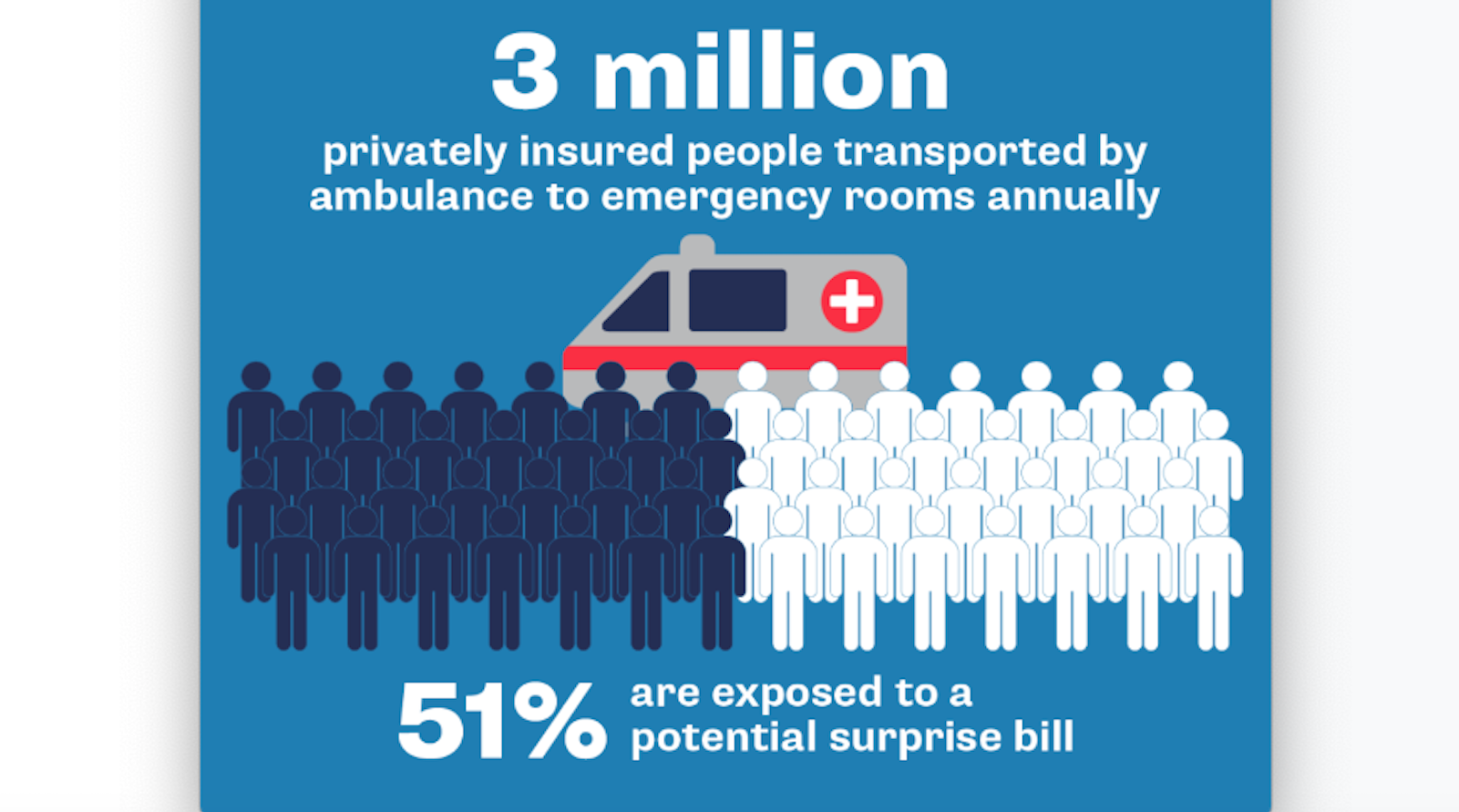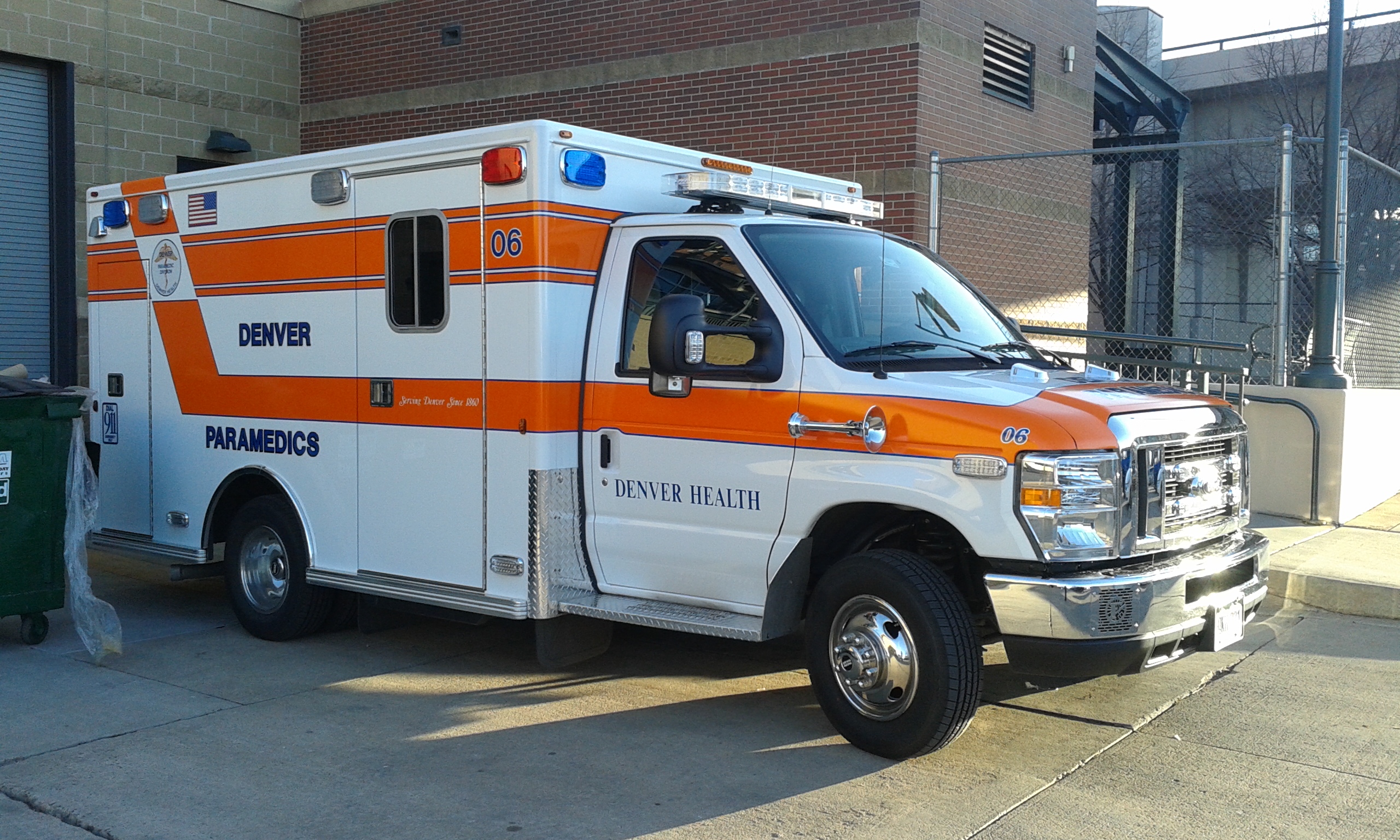
Just the facts: Protections from surprise bills and ambulance billing problems
Tips on the No Surprises Act and the problem with ambulance bills
What is a surprise medical bill?
A surprise medical bill is the “balance bill” patients receive when they get care from a provider not in their insurance network. One in five insured Americans who had surgery or visited an emergency room were receiving a surprise medical bill. But the No Surprises Act has put an end to those out-of-network bills that they couldn’t avoid.
New protections from surprise medical bills – the No Surprises Act
Patients should not receive a surprise medical bill from an out-of-network provider in the following situations:
- For emergency care in an emergency room
- For any care at an in-network health care facility
- When you are transported by an air ambulance (airplane or helicopter).
Location of treatment matters
These protections only apply when you are treated in certain types of health care facilities.
For emergency care: All hospital emergency rooms, freestanding emergency departments and urgent care centers that are licensed to provide emergency care, whether in or out of your plan’s network.
For non-emergency care: Hospitals, hospital outpatient departments and ambulatory surgery centers that participate in your plan’s network.
These protections do not apply when you are in other types of health care facilities — such as birthing centers, clinics, hospice, addiction treatment facilities, nursing homes or urgent care centers — that are not licensed to provide emergency care.
Other things to know:
- No Surprises Act protections only apply to bills for services delivered on or after January 1, 2022
- Think carefully before signing the ‘Surprise Billing Protection Form’ – learn more here.
- If you think you have received a surprise medical bill, you should contact both the provider and your insurer immediately. If they continue to ask for payment, you should file a complaint at https://www.cms.gov/nosurprises or call 1-800-985-3059. File your complaint within 120 days of the date of your first bill.
For more tips:
Read our Patient Guide: Surprise medical billing protections you can use now
Ambulance Surprise Billing
When a medical emergency strikes, the most important thing is to get help fast. Ground ambulances transport approximately 3 million privately insured people to emergency rooms annually.

The problem is that patients generally don’t choose their ambulance service. They (or someone else) call 9-1-1, and the dispatcher sends out a responder. Then, the patient is obligated to pay the bill if the ambulance is not in their insurance network. Studies show about half of emergency ambulance patients with insurance are at risk of receiving a surprise medical bill. Those balance bills carry a median out-of-pocket charge of $450. It’s even higher in some states, like California and Massachusetts, where the median patient out-of-network bill is more than $1000.
When Congress passed the No Surprises Act to protect patients from many types of out-of-network balance bills, it didn’t include ground ambulances. But it did set up the Advisory Committee on Ground Ambulance and Patient Billing to study the problem and make recommendations.
Solutions:
- Ban surprise billing from ground ambulances to protect insured patients from out-of-network bills they can’t avoid.
- Collect data to determine reasonable payments for ambulance services to make sure emergency transportation is still available in all communities but isn’t price-gouging patients who need their services.
- Learn from the ten states that have already passed ambulance surprise billing protection laws to ensure the best law possible.
Learn more in our report: EMERGENCY: The high cost of ambulance surprise bills.
Topics
Authors
Patricia Kelmar
Senior Director, Health Care Campaigns, PIRG
Patricia directs the health care campaign work for U.S. PIRG and provides support to our state offices for state-based health initiatives. Her prior roles include senior policy advisor at NJ Health Care Quality Institute, associate state director at AARP New Jersey and consumer advocate at NJPIRG. She was appointed to the Ground Ambulance and Patient Billing Advisory Committee in 2022 and works with patient advocates across the U.S. Patricia enjoys walking along the Potomac River and sharing her love of books with friends and family around the world.
Find Out More

Outpatient outrage: Hospitals charge fees for care at the doctor’s office

PIRG joins open letter to Congress calling for “Same service, same price” policy

Hill Letter to US House: Vote “Yes” on Lower Costs, More Transparency




